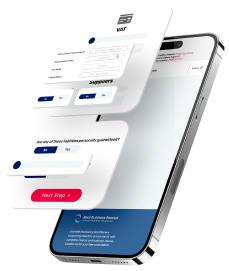
Understand your company's position and learn more about the options available
Require Immediate Support? Free Director Helpline: 0800 644 6080
Free Director Helpline: 0800 644 6080
Updated:
While nobody sets out with the intention of their company failing, unfortunately many businesses will experience some form of financial difficulty at some point.
What you need to remember during this time is that experiencing financial or operational difficulties with your limited company does not necessarily mean your business is beyond rescue.


Get an instant understanding of your:
Plus much more ...
Start The 60 Second Test
Although it may be difficult to see a way out, there are a range of rescue and recovery options that may be able to help you deal with the debts of your business. This could involve negotiating with creditors for more favourable payment terms, protecting your company from ongoing or threatened legal action, or giving you the time and space to restructure your company to help it return to a profitable state.
This can be done under the guidance of a licensed insolvency practitioner who will be able to assess your company’s current position, and put in place a robust yet flexible plan to help you navigate the challenges you are facing.
For some companies, however, their problems will have taken the business past the point of rescue, and in these instances, it is essential that the business is wound down in an orderly manner via a formal liquidation process.
UK’s number one for director advice
We handle more corporate insolvency appointments than any other UK firm; demonstrating our commitment to helping directors and business owners in financial distress.
The team are available now - 0800 644 6080
60 Second Test Find Your Nearest Office
As the director of an insolvent company, you have a legal duty to protect the interests of your creditors and ensure your actions do not cause them to suffer further financial losses. By enlisting the help of a licensed insolvency practitioner, we can ensure your company’s affairs are brought to an end in accordance with these legal obligations and that the business is closed down in an orderly manner.
At Real Business Rescue, our licensed insolvency practitioners speak to limited company directors just like you each and every day. We can help you understand your options and put a plan in place going forwards.
Still unsure whether liquidation is right for your company? Don't worry, the experts at Real Business Rescue are here to help. Our licensed insolvency practitioners will take the time to understand the problems your company is facing before recommending the best course of action going forward based on your own unique circumstances.

Complete the below to get in touch
For Ltd Company Directors
Get An Instant Understanding Of Your:
Plus much more ...
We provide free confidential advice with absolutely no obligation.
Our expert and non-judgemental team are ready to assist directors and stakeholders today.

Understand your company's position and learn more about the options available

Find your nearest office - we have more than 100 across the UK. Remote Video Meetings are also available.

Free, confidential, and trusted advice for company directors across the UK.